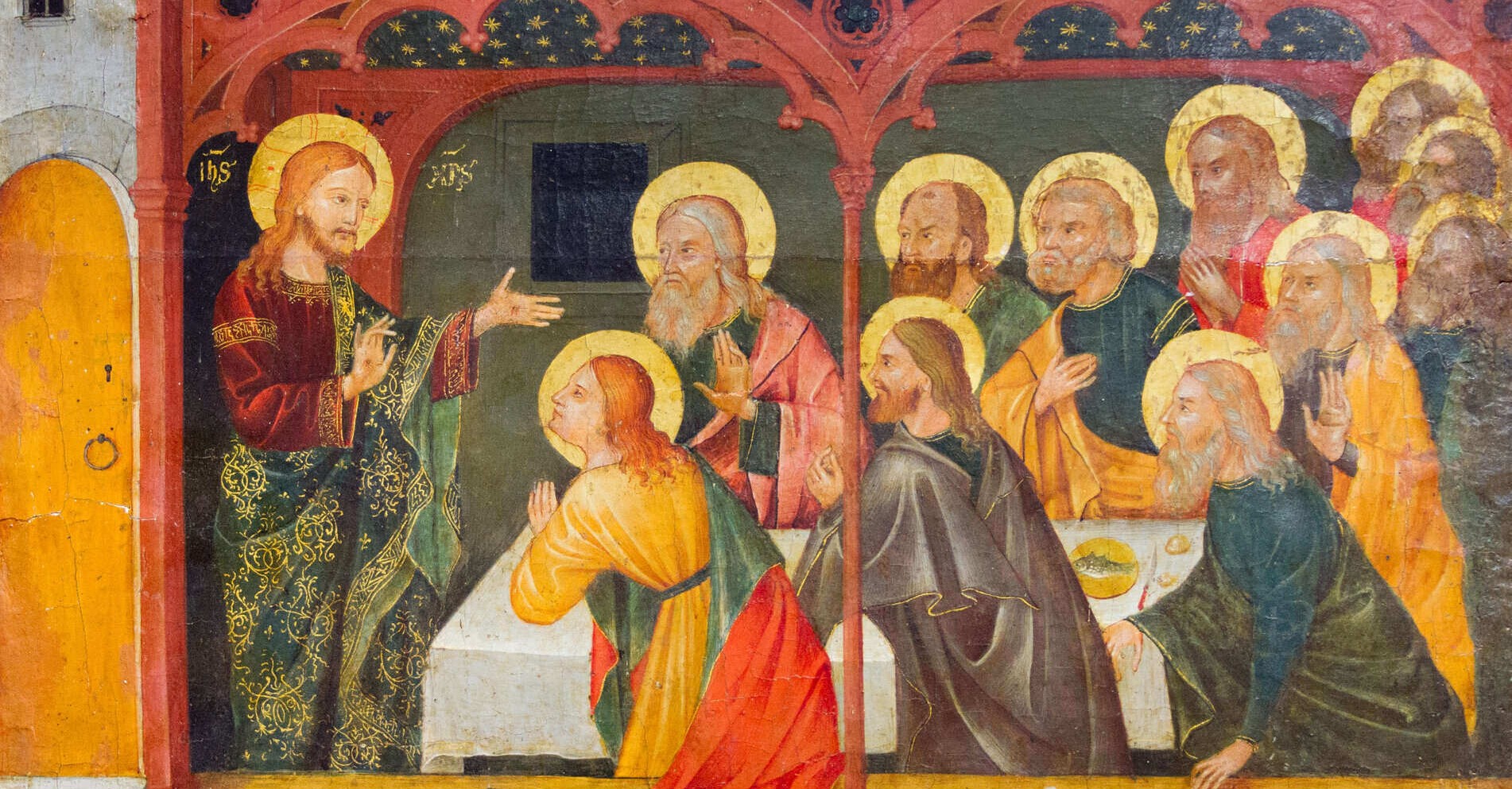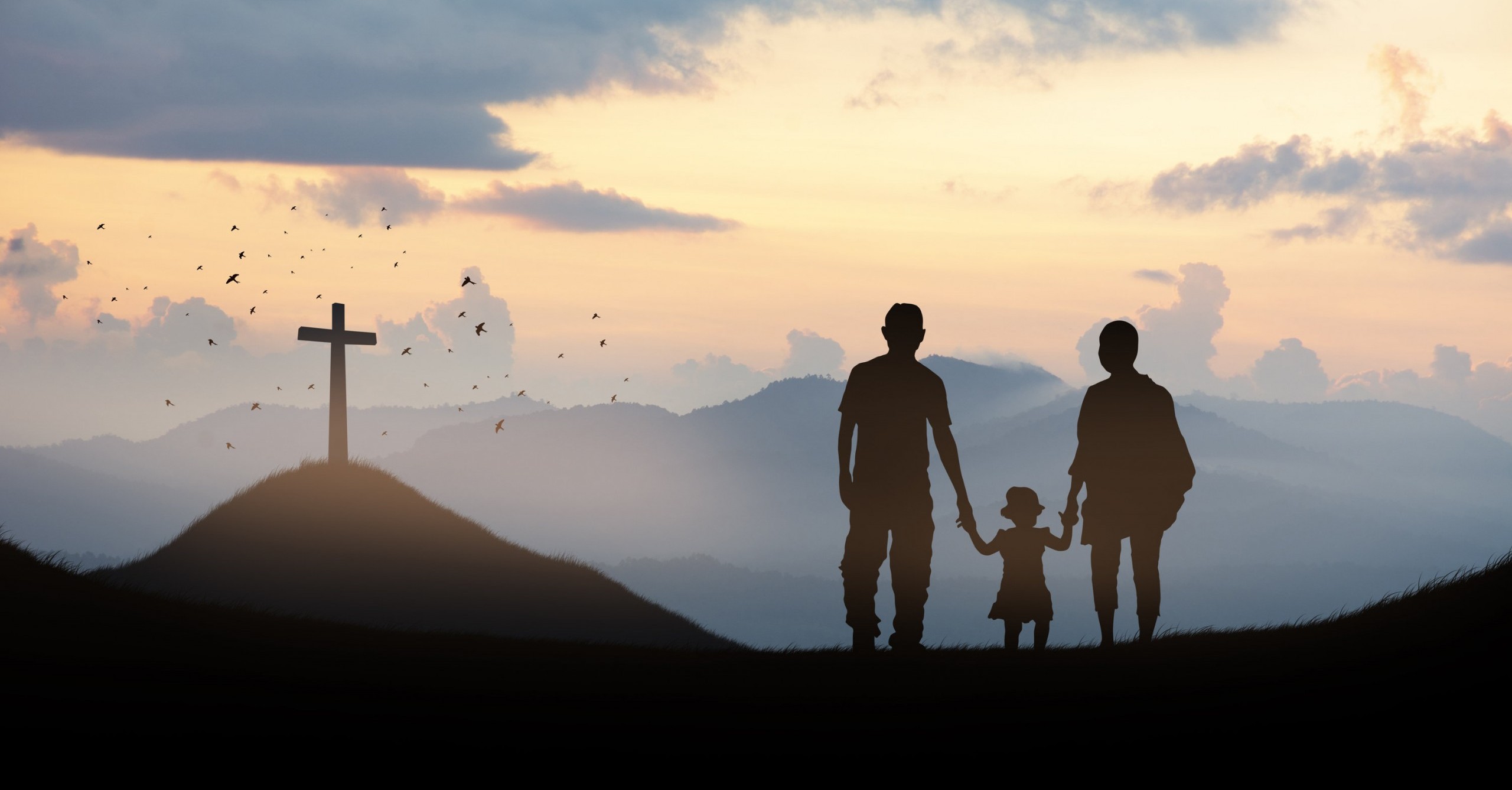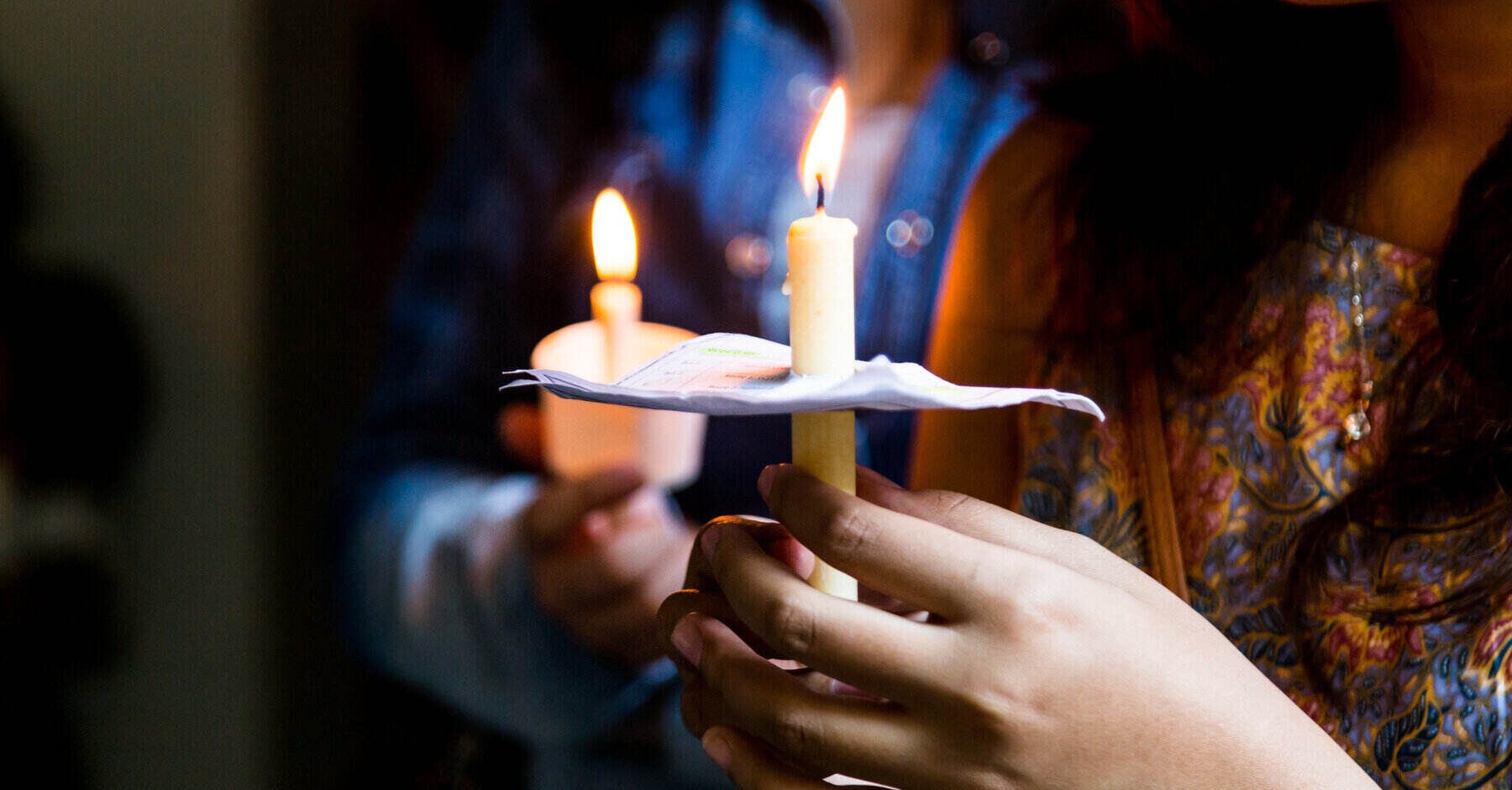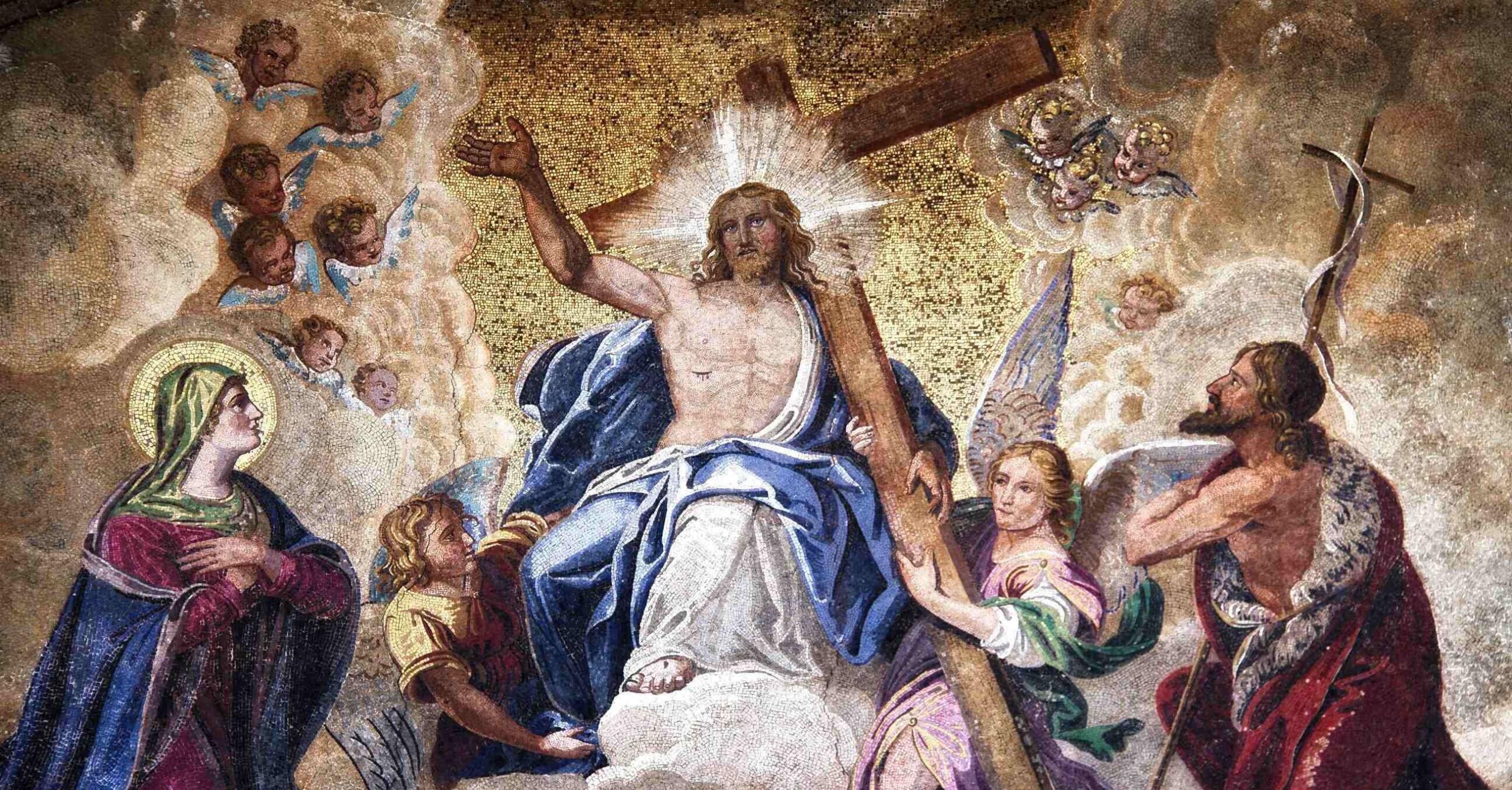Proper 28, 13 November 2022

Next Sunday, the liturgical year ends with the Feast of Christ the King.
I love the liturgical calendar: We not only preach the Gospel but trace the life and footsteps of Christ through the whole year. It teaches us to anticipate and hope for the promise, seek Christ in His Incarnation, and understand that without God’s revelation breaking through the ignorance and sin of humanity we will not know Christ. Then Lent brings us to the very point of understanding our humanity, that even though God has poured His grace and mercy upon us we are truly sinners, and that Christ became as human as we are, and we begin to understand that we came from dust and to dust we shall return. But it doesn’t leave us there – Easter gives us the hope of resurrection. Then in Ordinary Time God allows the Church to become a tree that will extend its branches to the whole earth. Then it closes and opens again, and there’s a cycle of three years. As the year ends, a new beginning will emerge.
When Jesus went to their house, Mary, who helped Martha prepare for His coming, sat at Jesus’ feet, enjoying His presence and listening to His words of wisdom. Martha, the epitome of servanthood, was very busy preparing many things; she asked the Lord,
“Are You not bothered that I’m doing all this preparation and Mary is not helping me?”[i]
Seeing these two contrasting personalities gives us the understanding that there’s a time to be Martha and a time to be Mary.
Who is Jesus to you?
The question that comes to my mind is, “Who is coming? Why do we celebrate the Feast of Christ the King?” When a visitor comes to our apartment, I go to the places we don’t usually clean, where sometimes the dirt has been pushed under the bed and has accumulated, because I want everything to be prepared. At Christ’s coming there must a be a preparedness. Many Christians today are preoccupied with the present and have forgotten the notion of the Christian future. The Creed says,
“I look for the resurrection of the dead and the life of the world to come”,
and that Jesus
“will come again to judge the living and the dead”.
The saying,
“Let us cross the river when we get there”;
does not apply in this case.
The mother of all questions is, “Who is Christ?” or “Who is Jesus of Nazareth?” Jesus asked His disciples,
“Who do people say that I am?”[ii]
and then,
“Who do you say that I am?”[iii]
Who is Jesus to you? Is He someone to whom you offer sacrifices every Sunday? Is Christianity ritualistic, or a set of laws, or is it relational? It has to do with a relationship. In today’s Gospel, Jesus asked the religious leaders the same question in a different way: What is the identity of the Messiah? On many occasions they asked Him questions and tried to entrap Him, but this time it was the other way around, at the point when they had no more questions to ask Him.
Jesus quotes directly from Psalm 110:
“The Lord said to my Lord,
‘Sit at My right hand,
Till I make Your enemies Your footstool.’”[iv] –
speaking of the Messiah’s reign.
Learning Through Crisis
This psalm was written by David, a very important figure in Israel. His ascension to the throne brought peace, unity, and prosperity; it was one of the best times in their history, although his kingship wasn’t free from turbulence. God promised to give David a descendant who would be king forever. After David’s reign when Solomon took over, everything went downhill; Israel was divided between the northern and southern kingdoms, and there followed the Assyrian and Babylonian invasions and the exile.
All this brought to the fore God’s promise of a Saviour. It is unfortunate that it’s only when unpleasant things happen in our lives that we begin to ask questions. One thing that is different in Israel’s history is that when there was a national crisis, eventually they would repent and turn back to God, recognising that they had done something He said they should never do. Then they were given the choice, as we read in the prophet Joel, between an imminent disaster or to fast and repent. Through a cycle of seven in the book of Judges they did this: they would worship Baal and Ashtaroth and do exactly what God said they should not, and get in trouble; then they would ask if they’d done something God did not like, because this is based on a Covenant. Then Israel would return to God, fast, and repent, and God would deliver them.
Not an Afterthought
If the Messiah comes from David’s lineage, why did David call Him Lord? The religious leaders could not answer Jesus’ question. In Revelation 22:16, Jesus says,
“I am the Root… of David”.
How can that be? If Jesus is a descendant of David, He could not have existed before him. The difficulty comes from the difference between a human understanding of history and a Biblical understanding. We humans believe in cause and effect, wherein an event causes succeeding events in a direct chronological succession. People experiment with domino tiles; when you tip one, it falls on the next until they all fall. We look at history in such a way, that the past shapes the future. However, there are many things in life, particularly from a Biblical vantage point, where the future influences the past and the present.
Last year, when you had not gone to the Philippines for a while, you decided to do so. That was your future plan, but the first thing you did was to look for a ticket. Your future plan led to things you had to do immediately because of something that was to come: you don’t buy your ticket on the day when you intend to fly. During the summer sale you started to look for gifts for your relatives – not during the winter sale, because they would perspire. Most people don’t send balikbayan boxes[v] in December, but in October; they start buying things in July, so the box will arrive in December.
We might say the reason Jesus was born was because of the Abrahamic Covenant, Israel, Jesse, and David; but really it was the other way around. Jesus was not an afterthought – everything was planned from long ago.
Let us Welcome Jesus with Merciful Deeds
On Palm Sunday we celebrate Jesus’ entrance into the great city of Jerusalem, riding on a colt, welcomed by people with palm branches in their hands; some took off their outer garments and laid them down on the ground where He would pass by. They shouted,
“Blessed is He who comes in the name of the Lord, the King of Israel!”
These words also remind us that there will be a Second Coming. But Who is this who is coming? Who is Jesus to you? And how are we going to welcome Him?
Saint Andrew of Crete said,
“Let us welcome Jesus, not with palm branches but waving our merciful deeds.”
In the Gospel for All Saints’ Day, Jesus said,
“When I was hungry, you fed Me; when I was thirsty, you gave Me something to drink… when I was in prison, you visited Me.”[vi]
Andrew continues,
“Let us spread our thoughts and hearts’ desire like garments under His feet. He who is coming, who is present everywhere, who pervades all things, will come.”
Jesus comes to us during the Eucharist, but His Second Coming will be completely different. In His first coming, humans judged Him; in His Second Coming, Jesus will judge humans and bring justice to those who are oppressed.
Prepare to Worship the King
The Venite,[vii] a beautiful invitatory,[viii] says:
“O come, let us sing to the Lord;
let us heartily rejoice in the strength of our salvation.”
Is the promise of salvation a source of our strength? Do we heartly rejoice that God saved, is saving, and will save us? Let’s come before His presence with thanksgiving. Next week it has been a tradition in some of our churches to reminisce and ask, “Lord, what are the things I can thank You for? What are the blessings with which You have blessed me since last Advent? You’ve done many things for me that I don’t deserve, and some that I’m unaware of.” This is a time to pause and thank God.
“For He is a great God, and a great King above all gods.” –
The one who is coming is the God of all gods and King of all kings.
“In His hands are the corners of the earth,
and the strength of the hills is His also.
For the sea is His, and He made it,
and His hands prepared the dry land.”
Isaiah says God holds His creation in the palm of His hand.[ix] Just imagine, to give you an understanding of who is coming, how big this God is. He also says these beautiful words:
“Heaven is My throne and earth is My footstool”.[x]
You can begin to imagine how big is this God. I’m trying to paint this picture, for us not only to prepare, but to understand Who is coming.
What if you received a letter saying the king of the country where you are living wanted to visit you – can you imagine how much preparation it would take to ensure we give him the honour that is due to him? Every Sunday Jesus comes to us! Are we prepared? Do we prepare ourselves to meet the one whom the Venite calls the Lord, the great God, the King who is above all gods? We have lost that understanding of Who we are meeting and Who we are expecting to come. He is coming, whether we like it or not.
Who is this One who is coming?
“Come, let us worship Him and fall down,
and kneel before the Lord our Maker,
for He is the Lord our God,
and we are the people of His pasture
and the sheep of His hand.”
This is God being described.
“O worship the Lord in the beauty of holiness,
let the whole earth stand in awe of Him.”
Recently I saw a scene where someone entered a hall and everyone stood up to respect and honour him – as when a judge enters a court. It’s for that reason that we kneel down, and there’s a time to stand up, and there’s even a reason sometimes to lie prostrate before God, because we have to give Him the due honour for who God is. But the problem is when we forget who God is to us.
“For He comes to judge the earth,
and with righteousness to judge the world,
and the peoples with His truth.”
Who is coming to be in our midst? Are we excited to meet Him? Are we excited on Sundays to come and worship Him, to give Him the due honour? I don’t come to church to expect God for more – I believe God has given more than we deserve; but we’re here to honour Him.
Nothing is More Important than God and the Hope of Christ’s Coming
Has the desire to meet Him on Sundays evaporated? Is it gone? Would we rather spend our time somewhere else? Then we have lost our understanding of who our God is and who Jesus is to us. If you have to work on Sundays because of necessity, I pray God will give you work to provide for your family without that. Sunday is the Lord’s Day, and we need to keep that alive in our heart, otherwise it’s very easy for us to be lured by the things of the world and say, “Nothing is more important the world, nothing is more important than me”. The truth is that nothing is more important than God. When Jesus is at the very centre of our lives, as when David ruled in the midst of Israel, there is peace, unity, and prosperity. What you and I anticipate and pray for – the peace of the world, unity, abundance and prosperity – will not happen until the coming of Christ.
That’s what we’re waiting for; and we need to keep on waiting. He comes to us every Sunday, but we also have to wait until He comes back. He promised to return, and we wait for Him. That’s something you must not allow the world to take away from you: it’s the only hope we have. The children of Israel, when there was a national crisis, would come to a realization, and ask, “Lord, what did we do to offend You?” and repent. Today when there’s a national crisis, people go to the person ruling the government and expect them to answer all our questions, or they vote for another political party. That’s a secular and human understanding. No – our only hope, and the real solution to the world we live in, is our God, and that He is coming. We humans are frail, and when we promise something, most of the time we cannot fulfil it – including me; but the true hope we have is God.
Never leave God when times are tough – they show that you need God all the more; that’s not the time to let go, but to cling and hold on.
Study questions:
- How is the Church’s calendar helping to shape your life as a Christian? How is it helping to give you hope?
- Why, and in what ways, do we need to prepare for Christ’s coming? Are you more focused on your life in the present world, or on the Christian future?
- Who is Jesus to you: a religious figure, or the God of the universe and your personal Saviour? What is Christianity to you: a ritual, a set of laws, or a relationship?
- What does it mean to you to have a Covenant with God? How has God spoken to you and your family through times of personal or national and international crisis? What experiences have you had where God has called your attention to repent and return to Him?
- How does the idea that Jesus’ coming was not an afterthought, but God’s plan from the beginning, help you to understand the story of the Bible and its various parts? How does the idea of preparing for the future help you to understand different periods of your life, and your life in the present world as a whole?
- Do you think of Christ’s Second Coming as a time for judgment, or mercy, or both? Will your merciful deeds be ready to welcome Him?
- In what ways has God blessed you during the past Church year? How much aware of His blessings have you been? Are you truly thankful, and how are you thanking Him?
- Who is the One who is coming? Who is He to you, and how do you think of Him? How are you preparing for His coming?
- Are you excited about Jesus’ coming? Are you excited about worshipping God and meeting with Him on Sundays? If not, why not – have you lost your sense of who He is, or are you anxious about other things? What is the importance of the Lord’s Day to you? Is God or something or someone else the centre of your life? If something is keeping you from fully enjoying Sunday worship and Jesus is not the centre of your life, what is it, and what can you do about this with the help of God and your church?
- Is Christ’s coming, or something else, your hope? To whom do you look, and in whom do you place your hope, in times of trouble or crisis? Do you keep your hope alive in difficult times, and if so, how? If you are struggling to keep your hope alive, what would help you?
[i] Luke 10:40
[ii] Matthew 16:13
[iii] Matthew 16:15
[iv] Psalm 110:1, Luke 20:42-43, NKJV
[v] For readers not acquainted with Filipino culture: balikbayan refers to a Filipino returning to the Philippines after a period of living in another country, and a balikbayan box is a box full of gifts sent from abroad to family members in the Philippines.
[vi] Matthew 25:35-36
[vii] A canticle used in the Daily Office of Morning Prayer in the Book of Common Prayer, taken from Psalm 95:1-7 and Psalm 96:9, 13
[viii] The psalm or canticle used at the beginning of certain prayer offices as a call to worship. Its name is from the Latin, invitare (to invite).
[ix] Isaiah 40:12
[x] Isaiah 66:1









